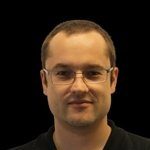Is psychoanalysis operating a phenomenological turn?
Some historical and epistemological elements of response
10 a.m. – noon
free to the public
To see part 1 of the lecture: click here
To see part 2 of the lecture: click here
At the turn o f the century, neuroscience provided space for the generation of a number of “neurodisciplines,” such as social neuroscience (Cacioppo & Bernston, 1992), neurophenomenology (Varela, 1996), neuropsychoanalysis (Nersessian & Solms, 1999), and neuroeconomy (Camerer, Loewenstein, & Prelec, 2005). To Fernando Vidal (Vidal, 2009) such cerebralization of the subject is not the result of recent advances in neuroscience. Instead, it is the endpoint of an anthropological mutation, extending back to the eighteenth century, which generated a disembodied representation of the self.
f the century, neuroscience provided space for the generation of a number of “neurodisciplines,” such as social neuroscience (Cacioppo & Bernston, 1992), neurophenomenology (Varela, 1996), neuropsychoanalysis (Nersessian & Solms, 1999), and neuroeconomy (Camerer, Loewenstein, & Prelec, 2005). To Fernando Vidal (Vidal, 2009) such cerebralization of the subject is not the result of recent advances in neuroscience. Instead, it is the endpoint of an anthropological mutation, extending back to the eighteenth century, which generated a disembodied representation of the self.
Dr. Arminjon proposes to show that Vidal’s historical account fails to explain why neuropsychoanalysis and neurophenomenology emerged precisely during the neuroscience boom and not before. Nevertheless, discussing Vidal’s thesis opens a space for showing why, in contrast to cognitive science’s disembodied model, both neuropsychoanalysis and neurophenomenology rehabilitated a corporeal and subjective conception of the subject.
This historical and epistemological analysis will have two aims: (1) Showing how Antonio Damasio’s neurobiology and Freud’s metapsychology are historically rooted in Theodor Meynert’s neuropsychiatry (Arminjon, Ansermet, & Magistretti, 2010), (2) showing why adopting a phenomenological perspective allows for clarifying to what extent the id can be said to be conscious (Solms, 2013).
Speaker Bio:
Mathieu Arminjon studied philosophy and psychology and holds a PhD in Life Sciences from the University of Lausanne. He works as a scientific collaborator at the University of Geneva and at the Agalma Foundation and teaches at the Swiss Federal Institute of Technology in Lausanne (EPFL). His areas of interest cover the historical epistemology of the life sciences, neuroscience and psychoanalysis. He is currently working on the political history of social epidemiology as a visiting scholar at the Center for the History and Ethics of Public Health (Columbia University).
ALL WELCOME!
For information about CMEs/CEs for physicians, psychologists,
and social workers, please click here